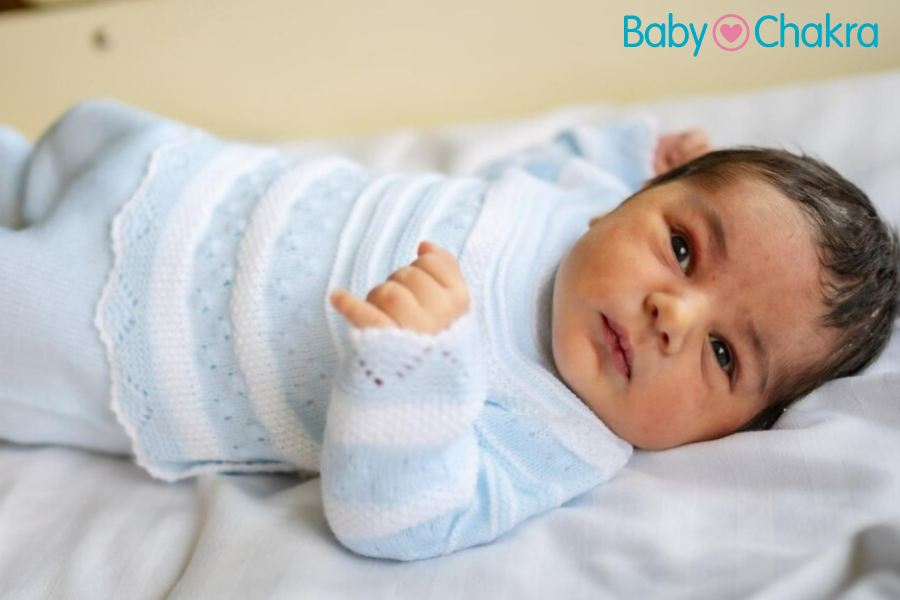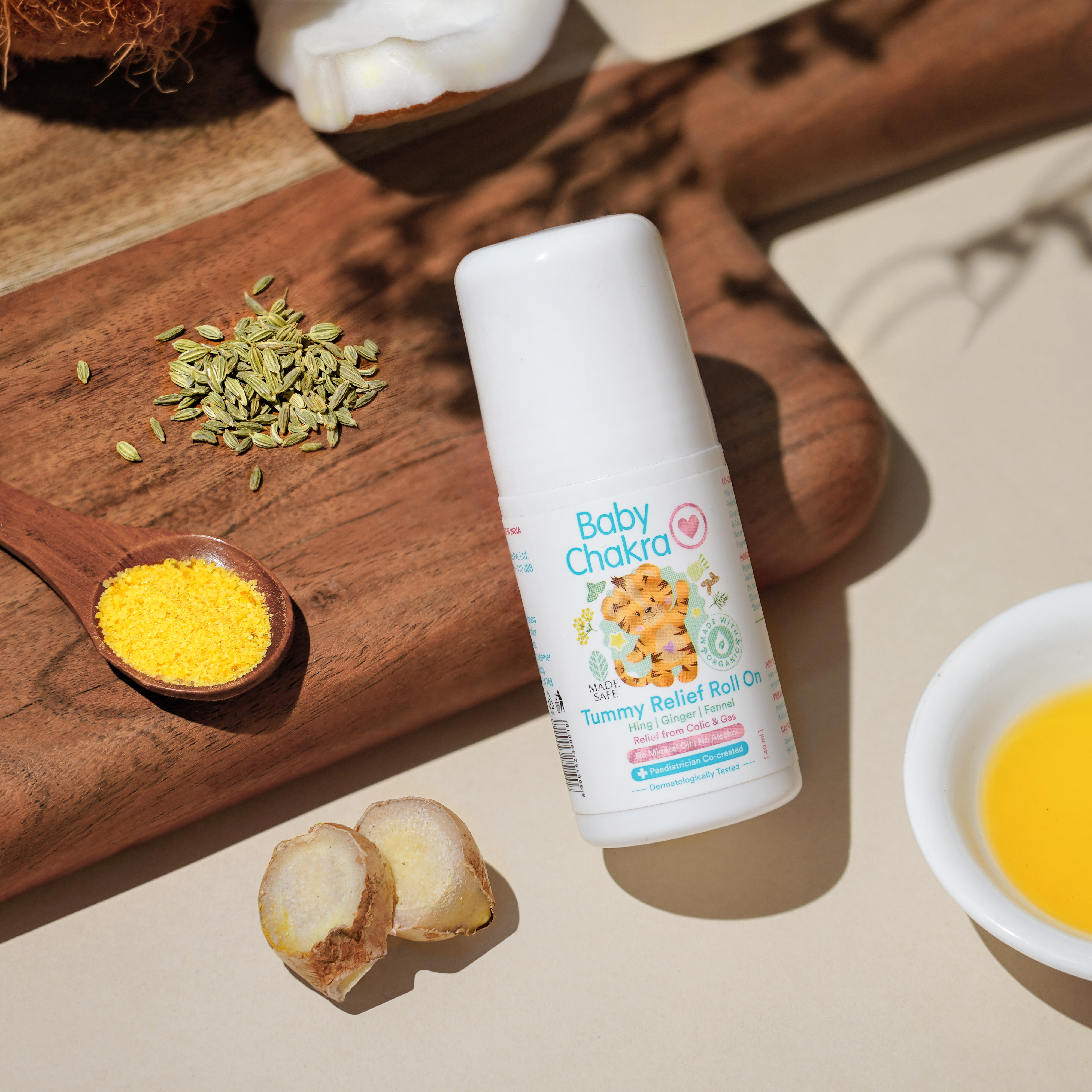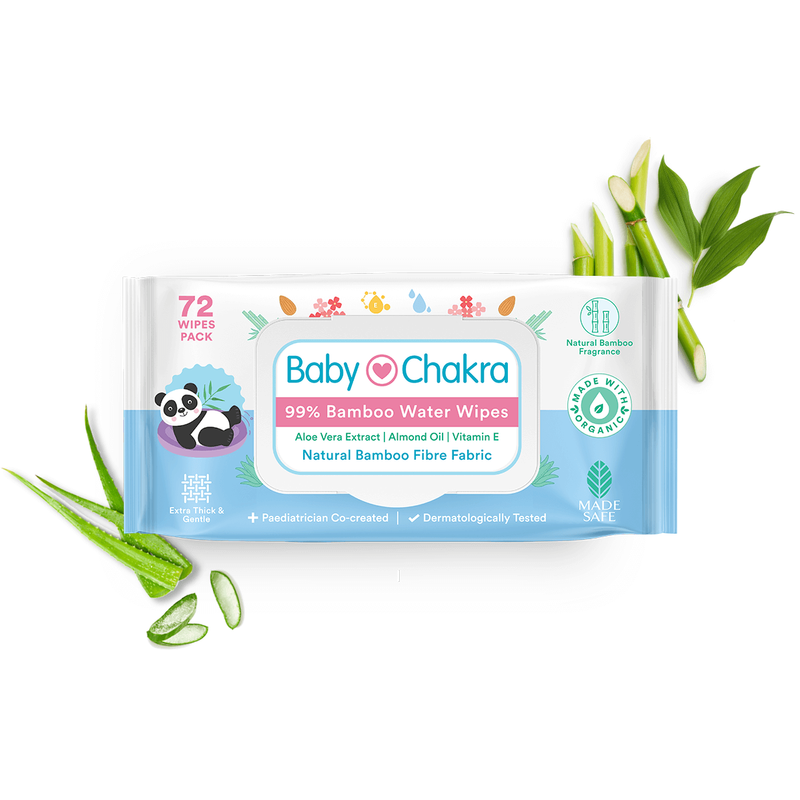
Possible Causes Of Baby Hiccups And 6 Ways To Stop Them
20 Mar 2023 | 6 min Read
Sudeshna Chakravarti
Author | 799 Articles
Whether you felt your munchkin hiccuping inside the womb during pregnancy, or they are a whole new experience, baby hiccups may surprise you and your little one. But here’s the thing—baby hiccups are extremely common, may occur frequently, and are usually a cause for concern until your munchkin is a year old.
The hiccups are just repeated contractions of your baby’s diaphragm that cause their vocal cords to shut, creating a characteristic ‘hic’ sound. Moreover, these hiccups may only last for a minute or two, and your little one may not even be bothered by them.
But if its frequent occurrence concerns you and makes you wonder how to stop baby hiccups, then keep reading as we have listed a few tricks that will keep your little one’s hiccups at bay and prevent them in the future.
Why Do Babies Hiccup?
Hiccups usually occur due to the trigger of the hiccup reflex, which is constituted of the simultaneous actions of the muscles that control the diaphragm, trachea, and nerves. When the nerves involved in this reflex are triggered or irritated, hiccups occur, which are then regulated by the parts of the spinal cord and brain.
Oftentimes, hiccups are also triggered in babies when they swallow excess air while feeding, or when they are overfed. Since hiccups are a common occurrence in the first few months of a baby’s life, your newborn may also have them without any noticeable triggers.
How Long Do Baby Hiccups Last?
Your munchkin may have hiccups multiple times a day, with each episode lasting for about 10 minutes or longer. But you don’t have to worry about your baby hiccuping, as they usually resolve in a few minutes on their own.
Plus, unless your baby is acting fussy or showing any signs of distress, hiccups are not a cause for concern.
6 Remedies To Stop Baby Hiccups
As discussed, baby hiccups are mostly short-lived and don’t need external intervention. However, if you find this event concerning, you may consider the following remedies to soothe your little one’s hiccups.
Change Your Baby’s Feeding Position
If your baby is bottle-fed, you can consider changing their feeding position. Try to feed your little one in an upright position to prevent extra air from entering their stomach to reduce the occurrence of hiccups.
Feed Your Baby Slowly
If your little one is bottle-fed at a fast pace, there are chances that their tummy will expand swiftly, and push against their diaphragm, leading to hiccups. Hence, you may try slow bottle-feeding techniques, such as paced-bottle feeding to reduce the risk of hiccups.
Burp Your Baby In Between Feeds
Burping your little one in between feeds can help release the trapped gas from their tummy and prevent hiccups. Follow this tip right from the beginning to prevent discomfort in your baby while feeding.
Hold Your Little One Upright After Feeding
Holding your little one in an upright position immediately after breastfeeding or bottle-feeding can help the gulped air escape their stomach and prevent the chance of gas building up, which may otherwise lead to hiccups.
Use A Pacifier To Soothe Their Hiccups
You can also try giving a pacifier to your hiccupping little one to relax their diaphragm and soothe their hiccups. However, do not force the pacifier on your baby if they are repeatedly declining it. Wait for a while and observe them carefully until the hiccups resolve.
Give Your Baby Some Gripe Water
Grips water is a mixture of herbs that is often available as an over-the-counter (OTC) medicine. It is especially recommended for babies with gastrointestinal disorders or colic. You can give gripe water to your baby to soothe their hiccups, but make sure to consult your paediatrician before.
These remedies come in handy if your baby is hiccupping frequently, or too much. But remember, your little one may be unbothered by these hiccups, and continue to eat and sleep well, even with them.
Moreover, according to experts, hiccups may benefit your infant as this reflex triggers a large wave of brain signals. These signals may help your little one to voluntarily control and monitor their breathing muscles.
Hence, if your little one is unbothered by the hiccups, you may leave them alone, and wait for the hiccups to resolve naturally.
What Not To Do To Stop Baby Hiccups?
You may come across many solutions online related to reducing your baby’s hiccups. However, some of these remedies may be harmful, and you shouldn’t try them on your baby. The techniques that you should absolutely avoid are:
- Startling your baby suddenly in an attempt to overwhelm the vagus nerve (the nerve from the brain to the abdomen)
- Letting a spoonful of sugar dissolve in your little one’s tongue
- Tickling the roof of your little one’s mouth with a Q-tip or a similar item
When To Seek Medical Care?
You must seek immediate medical help from your doctor in the following scenarios.
- If the hiccups are persistent and interfere with your baby’s sleeping and eating patterns.
- If the hiccups are accompanied by coughing and spitting up. These symptoms may indicate acid reflux in your little one.
- If your little one has frequent episodes of hiccups even after the age of a year.
Conclusion
Baby hiccups are quite a normal occurrence in the first year of your little one’s life, and not a cause for concern. Using the measures that we have discussed above, such as changing your baby’s feeding position, or feeding them slowly can help reduce and prevent hiccups in the long run.
However, if your baby’s hiccups are persistent even after a year, or if their hiccups are accompanied by other symptoms, then you should consider consulting a doctor for advice and treatment methods.
Recommended Baby Care Products:
Moisturising Creamy Bathing Bar
Also Read:
How to clean your baby’s ears: Learn how to safely clean your baby’s ears right at home.
Best baby soap: What are the factors to consider while buying a baby soap? Tao this post to know.
Baby lip blisters: Does your little one have lip blisters? Here’s how you can care for them.
Cover Image Credit: Freepik.com
A


Related Topics for you
Suggestions offered by doctors on BabyChakra are of advisory nature i.e., for educational and informational purposes only. Content posted on, created for, or compiled by BabyChakra is not intended or designed to replace your doctor's independent judgment about any symptom, condition, or the appropriateness or risks of a procedure or treatment for a given person.



